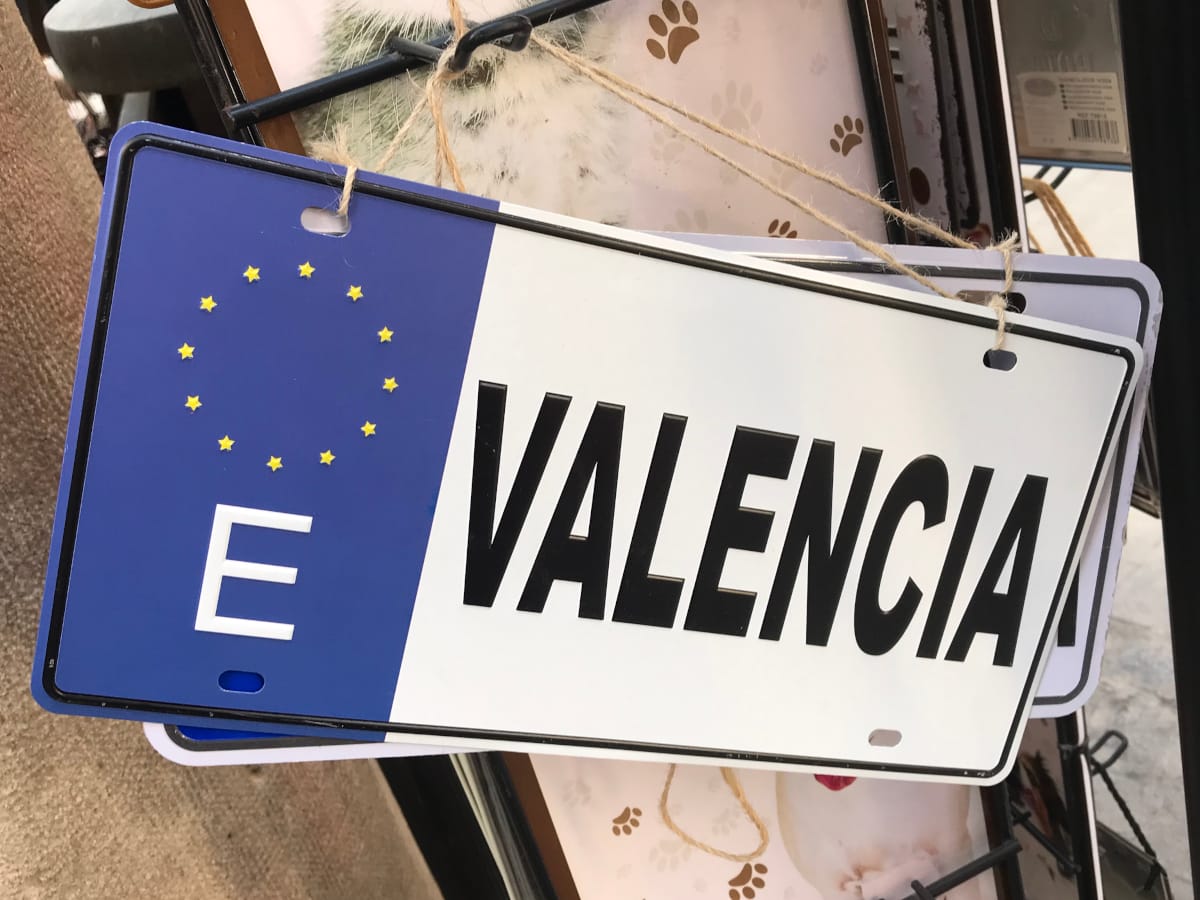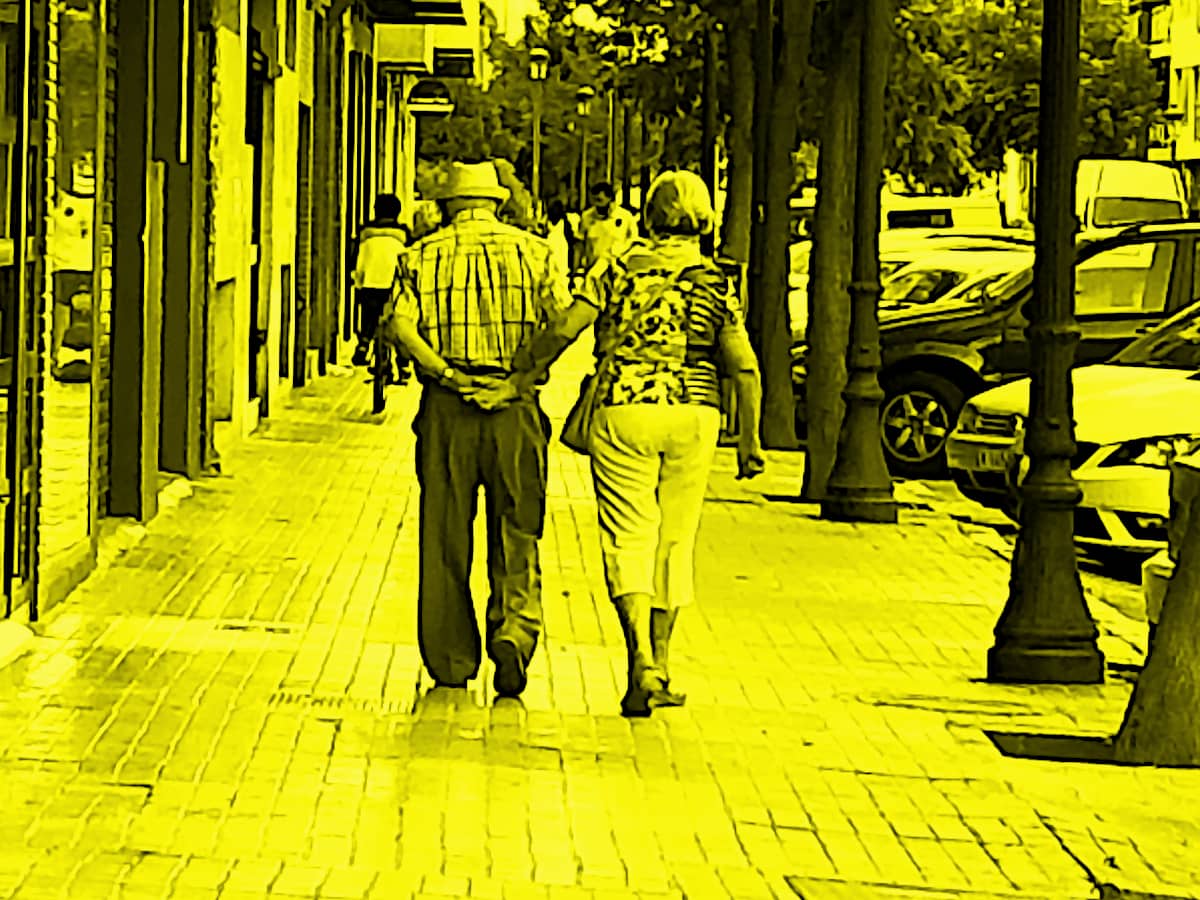Is Spain a country for old men (and women)?
Living la vida jubilada
The Spanish word for retirement, jubilación, looks a lot like “jubilation.” Upon arriving here in Valencia, I was jubilant. That about sums it up, it’s a “Golden Jubilee” time for me in Spain. All those years of saving have finally paid off.
My retirement is an interesting journey. While, I really didn’t intend to just quit work, the change was forced upon me. As a condition for the Non-Lucrative Visa (NLV) I needed to leave my job. So that was it – I resigned post haste.
I made sure the company insurance plan was still in effect during our last weeks in the U.S. Then off to Spain with the new health insurance there.

Health-care differences between Spain and the U.S.
Being retired means that healthcare and access to it is a salient issue. According to the U.S. Census data (PDF) more than 92% of people in the U.S. had some form of health insurance in 2022. That’s a mixture of public and private plans. Some of those plans cost more; others deliver less by way of benefits. Remember that availability doesn’t equal affordability in the U.S.
Almost everyone is covered in some way for medical expenses in Spain. For its citizens, it’s the taxes Spaniards pay that fund the public health-care plan. So, no, it’s not “free” but it ensures that one won’t go bankrupt should a major illness arise. And for non-E.U. residents like me, there’s the private-insurance option to cover our medical expenses. It’s also a prerequisite of getting the NLV. Compared to the U.S. for similar coverage, it’s far more affordable.
This near-universal, health-care coverage is probably a part of why Spain, like other countries with robust national plans, has greater longevity for its residents. It’s not how much you spend, but how efficiently you spend. Oh, lifestyle makes a difference too. The vaunted “Mediterranean Diet” is a factor.
Spain’s average life expectancy of 83.3 years outshines the U.S.’s of 76.4. I’m not going to go into the demographics of having an aging society, immigration, and funding. Suffice to say, on a per-capita basis, they’re more old folks around here. And those people fall into the group of Terza Edad or third age.

The benefits of being a golden oldie
O.K. getting older does present its challenges but, congratulations, you’ve made it thus far. Everybody gets a participation trophy. There are discounts at movie theaters, transportation, and cultural attractions. So it behooves you to ask when booking tickets or dining out.
These special offers can start as early as 60 years of age in Spain. In the US, AARP discounts can begin at 50 but without that membership, the savings usually cluster around 65 years as the starting point. On the other end of the spectrum, there are price reductions for children, young people, and large families. Again, it doesn’t hurt to ask what’s available for your itinerary.
“The measure of society is how it treats the weakest members.”
-Various*
Some drawbacks – outside of just getting older
Health insurance premiums are a little more expensive after you cross the 65-year-old threshold. Unlike the U.S. you aren’t entitled to the public health-care system by virtue of being an expat. If you legally reside here for at least a year you can get into the public system by paying the monthly premiums. The 17 autonomous regions in Spain run their own healthcare plans. So there can be some differences depending where you live.
Generally dental, some optical services, and prescriptions aren’t covered. That’s a blanket statement, which would require too much detail to go into here. Just realize there’s some research needed to find what works best. While prescriptions are generally cheaper in Spain, those with specific drug needs or ongoing requirements will need to budget accordingly.
For those covered under Medicare, it’s generally not available for use abroad. There are some rare instances it can be accessed, but don’t plan on it. However, you do have to pay the monthly premiums or face increased costs later. It’s strongly urged to research your own stituation.
Observations on being in the Terza Edad group
Spain has recognized that it has an aging population and needed to address this group’s requirements.

It’s common to see elderly people being shepherded by their caregivers. These could be family members or home aides. This aging-in-place scenario is optimal in several ways. There is the preference of people to want to remain in their home as long as possible. It can be less expensive to have home health services versus institutionalizing. Finally, the family dynamic is strong in Spain, with relatives opting to take care of the older generation.
Obviously, for most visa holders that’s not going to be an option.
While in Valencia, I have a cycling group, which invited me to join its rides. It took several months to find my “tribe” and it’s not a straightforward process to show up and ride. There are the relationships that you have to cultivate. And as a foreigner, you need to respect the process and differences.

That has led to me being invited on several hikes. When I explained that I didn’t have a car, but I’d meet them at the start via bus, someone was nice enough to offer me a ride. He even insisted that I ride “shotgun.” I protested, saying that his wife needed that spot and I’d happily sit in the back with the dog. But, no, it was settled and I was placed in the front passenger seat. Really incredibly nice to an interloper like me.
The hike wasn’t too taxing and the company was pleasant – including impromptu Spanish lessons. I’ve always subscribed to the maxim “why walk when you can ride?” My bike that is. There are many nearby hiking trails, all of which have their own special qualities and views. At this point in my life, I look at these excursions as a break in my fitness routine and as a form of active rest.
Where to from here?

Age is creeping up on me. I try to stay active and being here certainly helps with that goal. But at some point, I’m going to need some help. When we lived in Rome, we were in a four-story walkup. I didn’t think anything about hauling groceries up the multiple flights or my bike down those same stairs. Now, I’m keenly aware of my looming limitations.
Recently, we started looking for another apartment to downsize and cut costs. Things have really gotten expensive here in Valencia since we arrived here three years ago. Recently our son moved back to the U.S., so we are now paying for two places to live. To keep expenses under control, we’re looking for a cheaper place to live. However, iIt seems the only apartments within our budget are either without air conditioning/heating or without elevators. Sometimes it’s both.
Last year, I tore the meniscus in my left knee. For the first time, I needed to use a medical provider outside of my yearly checkups here. Though it wasn’t the way I wanted to be introduced to the healthcare system, it went well. Fortunately, surgery wasn’t needed and was given a prescription for 10 physical therapy appointments. Within six weeks I was able to start putting power on the pedals in earnest and I was back to riding outside. Oh, yeah, no copays – totally covered by the insurance plan.
But that episode taught me a lesson – a lack of mobility is definitely a factor to consider. We live on the seventh (eighth for U.S. readers) floor and there is no way I am going to get downstairs and upstairs without using our building’s elevator. A couple of floors at the maximum and it’d be incredibly slow going. So now that’s a big thing for me – what happens if my wife or I become less mobile? So two floors, maximum without an elevator – just in case. Since we live in Valencia year round I want AC, which is not as prevalent in older buildings.
And for my final act…
Admittedly, I haven’t had to confront my mortality in any meaningful way. But the day will come. If I’m still in Spain I’ll need to make a decision of returning to the U.S. and using my Medicare benefits. Ethically, it doesn’t feel right to saddle the Spanish healthcare system with my end-of-life costs. I’ve paid into the U.S. system for years and I’m entitled to that return.
My wife and I make the grim joke that if one of us loses our mental facilities, then just release the wheelchair’s brakes at the top of a hill, letting it speed into traffic at the bottom. OK, that’s macabre and not really a plan. The longer one lives, a mental or physical infirmity is increasingly likely to occur. It’s an eventuality that I am only starting to address.
Carpe diem really isn’t my style. I have more of an introspective, pre-planning personality. That’s because I’ve learned that I don’t do well with massive, sudden unexpected changes. So gaming out the scenarios ahead of time is my security blanket. My decision to relocate with my family was a dream years in the making. And with any luck, I’ll continue to plot my next steps – literally and figuratively – in my life’s journey.
*The quote, in various forms, has been attributed, among others, to Thomas Jefferson, Mahatma Gandhi, and Hubert Humprey. It’s a rabbit hole if you want to delve further into its origin.



Leave a Reply